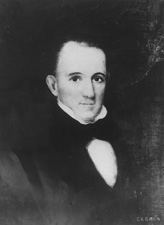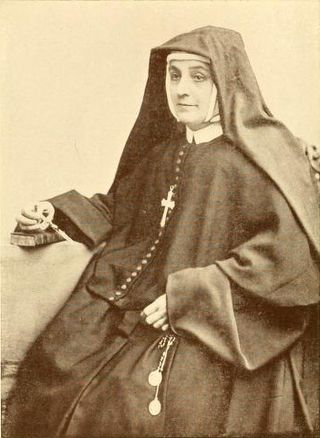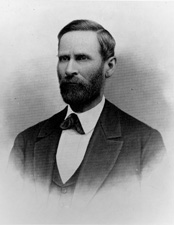Related Research Articles

The Holy See, also called the See of Rome, Petrine See or Apostolic See, is the jurisdiction of the pope in his role as the Bishop of Rome. It includes the apostolic episcopal see of the Diocese of Rome, which has ecclesiastical jurisdiction over the worldwide Catholic Church and sovereignty over the city-state known as the Vatican City. As the supreme body of government of the Catholic Church and Vatican City, the Holy See enjoys the status of a sovereign juridical entity under international law.

The pope, also known as the supreme pontiff, Roman pontiff or sovereign pontiff, is the bishop of Rome, head of the worldwide Catholic Church, and has also served as the head of state or sovereign of the Papal States and later the Vatican City State since the eighth century. From a Catholic viewpoint, the primacy of the bishop of Rome is largely derived from his role as the apostolic successor to Saint Peter, to whom primacy was conferred by Jesus, who gave Peter the Keys of Heaven and the powers of "binding and loosing", naming him as the "rock" upon which the Church would be built. The current pope is Francis, who was elected on 13 March 2013.

Vatican City, officially the Vatican City State, is a landlocked independent country, city-state, microstate, and enclave within Rome, Italy. It became independent from Italy in 1929 with the Lateran Treaty, and it is a distinct territory under "full ownership, exclusive dominion, and sovereign authority and jurisdiction" of the Holy See, itself a sovereign entity under international law, which maintains the city-state's temporal power and governance, diplomatic, and spiritual independence.

The 1840s was a decade of the Gregorian calendar that began on January 1, 1840, and ended on December 31, 1849.

Arthur Pendleton Bagby was the tenth Governor of the U.S. state of Alabama from 1837 to 1841. Born in Louisa County, Virginia, in 1794, he studied law and was admitted to the bar in 1819, practicing in Claiborne, Alabama. He was a member of the Alabama State House of Representatives in 1821, 1822, 1824, and 1834–1836, serving as the youngest-ever speaker in 1822 and 1836, and he served in the Alabama State Senate in 1825. A slaveowner, he served in the U.S. Senate from November 21, 1841, when he was elected to fill the vacancy caused by Clement C. Clay's resignation, to June 16, 1848, when he resigned to become Minister to Russia from 1848 to 1849.

Cornelia Connelly, SHCJ was an American-born educator who was the foundress of the Society of the Holy Child Jesus, a Catholic religious institute. In 1846, she founded the first of many Holy Child schools, in England.

Waldo Porter Johnson was an American lawyer and politician who served as a Missouri state representative, as well as briefly as a U.S. Senator before being expelled for treason in 1862, then serving as a Confederate States Army officer and Confederate States Senator from Missouri from 1863 to 1865 and finally as chairman of the Missouri constitutional convention of 1875.

Martin John Spalding was an American prelate of the Roman Catholic Church. He served as bishop of the Diocese of Louisville in Kentucky (1850–1864) and as archbishop of the Archdiocese of Baltimore (1864–1872). He advocated aid for freed slaves following the American Civil War. Spalding attended the First Vatican Council, where he first opposed, and then supported, a dogmatic proclamation of papal infallibility.
James Bennett Hunt was a politician and judge from the U.S. state of Michigan.

The current United States Ambassador to the Holy See is Joe Donnelly, who replaced the ad interim Chargé d'Affaires, Patrick Connell, on April 11, 2021. The Holy See is represented by its apostolic nuncio, Cardinal Christophe Pierre, who assumed office on April 12, 2016. The U.S. Embassy to the Holy See is located in Rome, in the Villa Domiziana. The Nunciature to the United States is located in Washington, D.C., at 3339 Massachusetts Avenue, N.W.

The inauguration of William Henry Harrison as the ninth president of the United States was held on Thursday, March 4, 1841, at the East Portico of the United States Capitol in Washington, D.C. This was the 14th inauguration and marked the commencement of the only four-year term of both William Henry Harrison as president and John Tyler as vice president. The presidential oath of office was administered to Harrison by Chief Justice Roger B. Taney. Harrison died 31 days into his term, the first U.S. president to die in office and has the shortest presidential term in American history. Tyler then succeeded to the presidency, creating a precedent which would be followed seven more times before it was officially regulated through the Twenty-fifth Amendment in 1967.
Events from the year 1789 in the United States. The Articles of Confederation, the agreement under which the nation's government had been operating since 1781, was superseded by the Constitution in March of this year.
Events from the year 1855 in the United States.

Protestantism is a branch of Christianity that follows the theological tenets of the Protestant Reformation, a movement that began in the 16th century with the goal of reforming the Catholic Church from perceived errors, abuses, and discrepancies.
Daniel Carroll Brent was an American politician and diplomat. He was acting United States Secretary of State for a three-day period from March 4 to March 7, 1825 due to the transition of John Quincy Adams from Secretary of State to President. He served as Chief Clerk for the United States Department of State, succeeding John Graham on September 22, 1817, and remained in that position until August 22, 1833, serving under presidents James Monroe, John Quincy Adams and Andrew Jackson. After leaving the position, he served as U.S. Consul to Paris until his death in 1841.

The 1848 Wisconsin gubernatorial election was held on May 8, 1848. This was the election for the first Governor of Wisconsin, which became a U.S. state that year, as it was held concurrent with a public referendum to ratify the Constitution of Wisconsin.
Lewis Cass Jr. was an American diplomat of the United States to the Papal States.
References
- Connelly, James. The visit of Archbishop Gaetano Bedini to the United States of America . Editrice Pontificia Università Gregoriana. 1960.
- Plischke, Elmer. U.S. Department of State: A Reference History . Westport, CT: Greenwood, 1999. ISBN 0-313-29126-8.